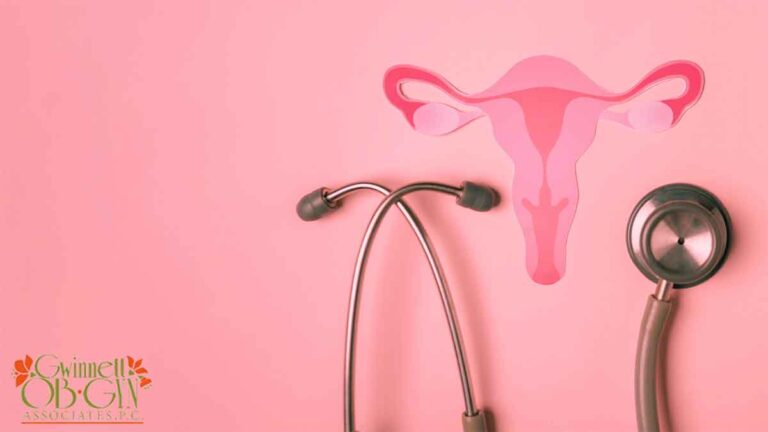Obstetrics and gynecology are two distinct yet closely related specialties in women’s healthcare. While often combined under the term OBGYN, each discipline addresses different needs depending on a woman’s age, health status, and reproductive goals. Knowing when to see an obstetrician or a gynecologist ensures that you receive the most appropriate and effective care at every stage of life.
Understanding Obstetrics and Gynecology
Though often practiced together, obstetrics and gynecology have separate clinical focuses. Each plays a critical role in maintaining and supporting women’s reproductive health.
Obstetrics focuses exclusively on pregnancy, including prenatal care, labor and delivery, and postpartum recovery. Obstetricians monitor maternal and fetal well-being, manage high-risk pregnancies, and respond to complications before, during, or after childbirth.
Gynecology, in contrast, deals with all other aspects of female reproductive health. This includes managing menstrual disorders, hormonal imbalances, pelvic pain, and conditions affecting the uterus, ovaries, or cervix. Gynecologists also perform preventive screenings and guide women through transitions such as menopause.
Physicians trained in both are known as OBGYNs, offering patients continuous care that bridges both specialties.
What Do Obstetricians Do?
Obstetricians provide comprehensive care throughout pregnancy, from the first prenatal visit to delivery and postpartum monitoring.
Their key responsibilities include:
- Prenatal Monitoring: Regular checkups to assess fetal development, maternal blood pressure, glucose levels, and signs of potential complications like preeclampsia or gestational diabetes.
- Labor and Delivery Care: Oversight of vaginal and cesarean deliveries, including pain management, fetal monitoring, and management of any emergent situations during childbirth.
- Postpartum Follow-Up: Evaluation of physical and emotional recovery after birth, including lactation support and addressing concerns such as postpartum depression or complications from delivery.
- High-Risk Pregnancy Management: Coordination of care for pregnancies affected by chronic conditions, advanced maternal age, multiple gestations, or fetal anomalies. This may involve collaboration with maternal-fetal medicine specialists.
What Do Gynecologists Specialize In?
Gynecologists address reproductive health outside of pregnancy and play a preventive and diagnostic role in long-term care.
Their scope includes:
- Preventive Screenings and Wellness Exams: Performing Pap tests, pelvic exams, breast exams, and HPV testing to detect early signs of disease and support routine health maintenance.
- Management of Menstrual and Hormonal Conditions: Treating irregular periods, polycystic ovary syndrome (PCOS), endometriosis, and perimenopausal symptoms through medical therapy or lifestyle adjustments.
- Fertility and Contraceptive Counseling: Providing ovulation assessments, family planning guidance, and tailored contraception options based on health history and personal goals.
- Diagnosis and Treatment of Gynecologic Disorders: Addressing concerns such as fibroids, pelvic inflammatory disease, ovarian cysts, and vaginal infections.
- Menopause and Hormone Therapy: Supporting women during menopause with treatment plans for hot flashes, bone health, mood changes, and genitourinary symptoms.
Training and Certification
Obstetricians and gynecologists undergo rigorous medical education and clinical training that spans nearly a decade to provide specialized, evidence-based care in women’s health.
Medical Education
All obstetricians and gynecologists begin their journey with four years of medical school, where they earn either a Doctor of Medicine (MD) or a Doctor of Osteopathic Medicine (DO) degree. This foundational education covers anatomy, physiology, pathology, and clinical practice, including early exposure to women’s health topics.
Residency in Obstetrics and Gynecology
Following medical school, physicians enter a four-year OBGYN residency. This comprehensive training includes supervised, hands-on experience in both obstetrics and gynecology. Residents rotate through labor and delivery, gynecologic surgery, infertility, oncology, and preventive care. During this time, they gain real-world skills in managing everything from routine wellness exams to high-risk pregnancies and surgical procedures.
This dual focus allows physicians to diagnose, manage, and treat a wide spectrum of reproductive health conditions with precision and confidence.
Board Certification and Continued Expertise
After completing residency, many physicians pursue board certification through the American Board of Obstetrics and Gynecology (ABOG). This requires passing rigorous written and oral exams to validate clinical competency and uphold high standards of patient care.
When to Consult Each Specialist
Knowing which provider to see and when is key to receiving the most appropriate care for your reproductive health. While gynecologists and obstetricians both support women’s health, their expertise applies to different phases and medical needs. A clear understanding of each role helps ensure that care is timely, focused, and tailored to your health goals.
When Should I Consult a Gynecologist?
A gynecologist is your primary resource for routine reproductive care and non-pregnancy-related concerns. If you are experiencing changes in your cycle or pelvic discomfort or are due for a preventive exam, consulting a gynecologist is important in maintaining your health.
You should schedule a visit with a gynecologist for:
- Menstrual irregularities or heavy bleeding
If your periods are painful, unpredictable, or excessively heavy, a gynecologist can evaluate for conditions such as fibroids, hormonal imbalances, or endometriosis. - Pain during intercourse or pelvic discomfort
These symptoms may indicate infections, structural issues, or hormonal changes that require evaluation and management. - Family planning and contraception
Whether you are considering pregnancy or want to discuss birth control options, your gynecologist can provide evidence-based guidance suited to your lifestyle and medical history. - Vaginal discharge, itching, or signs of infection
Symptoms of infection should be addressed promptly to avoid complications and ensure effective treatment. - Support during menopause or hormonal transitions
A gynecologist can help manage hot flashes, mood changes, and other symptoms through individualized therapies, including hormone replacement if appropriate.
Gynecologists play an essential role in preventive care, helping to detect health issues early and supporting reproductive wellness across all stages of life.
When Should I See an Obstetrician?
An obstetrician is the right provider for women who are pregnant, planning a pregnancy, or managing a high-risk pregnancy. Obstetricians are trained to oversee both routine and complex pregnancies with a focus on the safety of the mother and baby.
You should consult an obstetrician if:
- You are pregnant and need prenatal care
Obstetricians perform ultrasounds, monitor fetal development, assess maternal health, and guide expectant mothers through each trimester of pregnancy. - You are planning to conceive
Preconception visits help evaluate your current health, address any risks, and optimize conditions for a healthy pregnancy. - You have a high-risk pregnancy or medical complications
Women with a history of gestational diabetes, hypertension, preterm labor, or multiple pregnancies benefit from the specialized care of an obstetrician. - You need support for labor, delivery, or postpartum recovery
Obstetricians provide expert care during childbirth and continue to monitor your health after delivery to ensure proper healing and adjustment.
Choosing the appropriate specialist at the right time helps ensure that your care is both effective and personalized. Whether managing routine wellness or a pregnancy, timely medical attention supports better outcomes for your reproductive health.
Can a Doctor Be Both an Obstetrician and a Gynecologist?
Many physicians are trained and board-certified in both obstetrics and gynecology, allowing them to practice as OBGYN specialists. This dual expertise enables them to provide comprehensive care throughout a woman’s reproductive life, from adolescence to menopause.
These specialists are uniquely equipped to:
- Conduct routine gynecological exams, screenings, and preventive care
- Manage pregnancy, labor, and postpartum recovery
- Perform both gynecologic and obstetric procedures, including surgeries when necessary
Having a provider who understands the full scope of your reproductive health can lead to more consistent and coordinated care. This continuity is especially valuable for patients managing chronic conditions, navigating pregnancy after gynecologic treatment, or seeking a long-term partner in their reproductive wellness.
Choosing the Right OB/GYN for Your Healthcare Needs
Understanding the difference between obstetrics and gynecology is essential for making informed decisions about your reproductive health. Whether you’re seeking routine gynecological care, pregnancy monitoring, or specialized treatments, choosing an experienced OBGYN specialist ensures you receive the highest quality care tailored to your needs.
Gwinnett OB/GYN provides comprehensive, compassionate, and expert care for women at every stage of life. With over 45 years of experience, our team of board-certified gynecologists and obstetricians is committed to delivering personalized healthcare in a welcoming environment.
Take charge of your reproductive health today. Schedule an appointment with our trusted gynecologist or OBGYN specialist in Snellville, GA, and receive expert care designed for your well-being.



